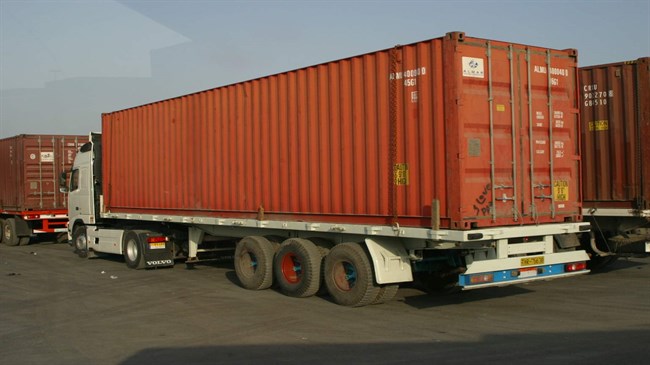
US sanctions: Threat or opportunity for Iran?

But in the wake of the US pullout from the accord, reimposition of unilateral sanctions against Iran and Iran’s decision to reduce its commitments under the JCPOA, the deal’s survival hangs in the balance.
Dagmar von Bohnstein, the managing director of the German Iranian Chamber of Industry and Commerce (AHK Iran), acknowledged that the US sanctions against Iran have "very deeply" affected the operation of European companies in Iran.
“If you look at the figures, in 2018 we had a trade volume of €3.1 billion. But in the first four months of this year it reduced for almost 50 percent, though I’m pretty sure that for this year we won’t reach more than €1.5 billion or perhaps €2 billion trade volume,” Bohnstein told Press TV.
She added that despite all the difficulties, there are still German companies that are struggling to stay in the Iranian market.
“I would say in 2016 we had around 120 German companies being engaged in that market but it reduced around 50 percent, meaning that today more or less 60 companies are not only present in Iran but still engaged with Iran."
While many EU countries have said they oppose the US sanctions, it appears they don't know precisely how to deal with them. For example, the EU special payment mechanism for trade with Iran, known as INSTEX, has failed to solve trade problems with Tehran.
Asked about the degree of success of INSTEX and criticisms directed by Iranian officials against Europe, Bohnstein said, "I ask the Iranians to remain patient because it is a pretty new instrument and tool and it is complicated to do the first steps.”
"INSTEX is really a big new move of the Europeans. It is the first time that Europe tries to be really independent of the US with regard to trade and it is really a big step …," the top German businesswoman noted.
Iranian officials, however, say they have become disappointed with Europe and that is why Iran has pushed for expanding commercial ties with its neighbors to offset the impact of the US sanctions and bolster its own economy.
Hamidreza Azizi, an assistant professor at Shahid Beheshti University in Tehran, said following the US withdrawal from nuclear deal in May 2018, Iran defined a new policy, expanding ties with its neighbors, most importantly Iraq, Afghanistan and Pakistan.
Azizi referred to a 20-percent increase in trade relations between Tehran and Baghdad. Since March, Iran has exported $2.5 billion worth of commodities and services to Iraq.
President of the Iran-Iraq Chamber of Commerce Yahya Al-e Es’haq recently said that Iran’s bilateral trade with Iraq is ten times more than that with the whole Europe.
"Iraq has many needs and Iran’s economy and Iranian companies have many competitive advantages in this market. This has provided us a great opportunity to export our goods and services to Iraq," Reza Moonesan of the Iran-Iraq Chamber of Commerce told Press TV.
Last year, Iran's exports to Iraq, including commodities and services as well as electricity and gas, stood at $13 billion, Moonesan said.
Despite sanctions, Iran with its economic weight remains an integral actor in the Middle East.


Trump weighs using $2 billion in CHIPS Act funding for critical minerals

Codelco cuts 2025 copper forecast after El Teniente mine collapse

Electra converts debt, launches $30M raise to jumpstart stalled cobalt refinery

Barrick’s Reko Diq in line for $410M ADB backing

Abcourt readies Sleeping Giant mill to pour first gold since 2014

Nevada army depot to serve as base for first US strategic minerals stockpile

SQM boosts lithium supply plans as prices flick higher

Viridis unveils 200Mt initial reserve for Brazil rare earth project

Tailings could meet much of US critical mineral demand – study

Kyrgyzstan kicks off underground gold mining at Kumtor

Kyrgyzstan kicks off underground gold mining at Kumtor

KoBold Metals granted lithium exploration rights in Congo

Freeport Indonesia to wrap up Gresik plant repairs by early September

Energy Fuels soars on Vulcan Elements partnership

Northern Dynasty sticks to proposal in battle to lift Pebble mine veto

Giustra-backed mining firm teams up with informal miners in Colombia

Critical Metals signs agreement to supply rare earth to US government-funded facility

China extends rare earth controls to imported material

Galan Lithium proceeds with $13M financing for Argentina project

Kyrgyzstan kicks off underground gold mining at Kumtor

Freeport Indonesia to wrap up Gresik plant repairs by early September

Energy Fuels soars on Vulcan Elements partnership

Northern Dynasty sticks to proposal in battle to lift Pebble mine veto

Giustra-backed mining firm teams up with informal miners in Colombia

Critical Metals signs agreement to supply rare earth to US government-funded facility

China extends rare earth controls to imported material

Galan Lithium proceeds with $13M financing for Argentina project

Silver price touches $39 as market weighs rate cut outlook

















